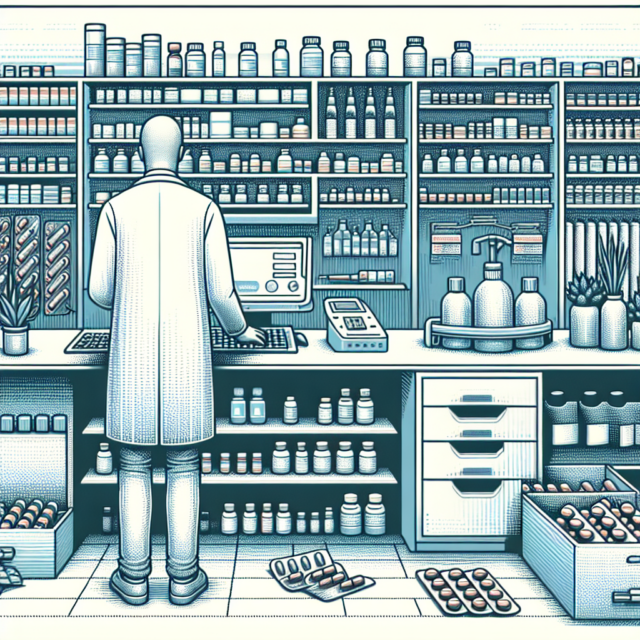The world of pharma marketing is changing rapidly, and 2025 will be no exception. For pharma marketing executives, adapting to these shifts isn’t just about keeping up—it’s about staying ahead. From digital transformation and personalized marketing to compliance and competition, the upcoming years will demand flexibility and innovative thinking. So, what will be the top challenges in 2025, and how can pharma marketers tackle them? Let’s explore the key issues and discuss strategies for success.
The Digital Transformation of Pharma Marketing
Digital transformation in the pharmaceutical industry isn’t just a buzzword; it’s a necessity. Marketing executives are increasingly expected to adopt and implement digital strategies that can reach broader audiences in real-time. This shift includes everything from leveraging social media to engaging patients through apps and personalized email campaigns.
Navigating digital transformation means keeping up with tools and trends that might be here today and gone tomorrow. For marketers, it’s like surfing—you have to keep riding the wave to stay on top.
Data Privacy and Compliance Challenges
Data privacy is one of the most pressing concerns in 2025, especially with new regulations being enacted globally. The challenge is not just collecting data, but doing so ethically and in compliance with laws like GDPR in Europe and HIPAA in the United States. Pharma companies must also ensure that sensitive health information is safeguarded, as patient trust hinges on data security.
Personalized Marketing at Scale
Patients now expect personalized experiences, which presents both an opportunity and a challenge. Scaling personalized marketing while ensuring regulatory compliance is no small feat. Executives must navigate the delicate balance between offering targeted content and protecting patient privacy. It’s a bit like tailoring a suit—finding that perfect fit for each customer while keeping the brand’s message intact.
Increased Competition from New Entrants
The pharma industry is no longer limited to big names. Digital health startups, biotech companies, and even tech giants are entering the healthcare market, bringing innovative products and marketing approaches. For established pharma companies, this means an increased need for differentiation. Competing against agile newcomers requires quick adaptation, unique positioning, and a strong brand voice.
Engaging Healthcare Providers in a Digital Age
Reaching healthcare providers (HCPs) has traditionally involved in-person meetings and conferences. However, the shift toward digital means that marketers must find new ways to connect with HCPs, whether through webinars, digital content, or online communities. In 2025, creating engaging digital content that resonates with busy providers will be crucial.
Patient-Centric Marketing
Patient-centered care is increasingly becoming the standard in healthcare. For pharma marketers, this means moving beyond product-focused marketing to providing real value to patients. Creating content that educates, informs, and supports patients throughout their health journeys can foster trust and brand loyalty, making patient-centric marketing a must-have strategy.
The Role of Artificial Intelligence (AI)
AI continues to reshape pharma marketing, providing insights into patient needs, predicting market trends, and improving customer segmentation. However, using AI responsibly is key. Executives must ensure AI tools align with ethical guidelines, data privacy laws, and the brand’s commitment to patient well-being. In many ways, AI can act like a compass, helping marketers navigate the complex terrain of patient needs and preferences.
Navigating the World of Telehealth and E-Health
With telehealth and e-health on the rise, pharma marketers need to align their strategies to fit this digital health landscape. Patients are now receiving care from their homes, and pharma companies can no longer rely solely on in-office promotional materials. Engaging patients through digital channels that support telehealth services will be a crucial challenge in 2025.
The Rise of Value-Based Marketing
As healthcare moves toward value-based care, pharma marketing must reflect this shift. Value-based marketing means highlighting how products improve patient outcomes rather than just focusing on features. For instance, marketing efforts might showcase how a medication supports faster recovery or improves quality of life. This shift requires a deeper understanding of patient needs and healthcare trends.
Building Trust in a Skeptical Audience
In today’s world, patients are more skeptical than ever. Transparency and authenticity are essential in building trust, especially when marketing medical products. Pharma marketing in 2025 will involve more honest, clear, and accessible messaging. Brands that can present themselves as trustworthy allies in patients’ healthcare journeys will stand out.
Creating Agile Marketing Strategies
The future is unpredictable, and successful marketing strategies in 2025 will be those that can adapt quickly. Agile marketing is about staying flexible and adjusting campaigns based on real-time data and shifting market trends. This flexibility allows pharma companies to stay relevant, especially when faced with unexpected challenges or regulatory changes.
Conclusion
The top challenges in pharma marketing for 2025—digital transformation, data privacy, patient-centric care, and more—reflect a rapidly evolving healthcare landscape. Staying competitive requires agility, patient-centered strategies, and a commitment to ethical marketing. As the industry continues to change, marketing executives who embrace innovation and authenticity will be better prepared to navigate the road ahead.
FAQs
1. Why is digital transformation important for pharma marketing?
Digital transformation allows marketers to reach patients and providers on modern platforms, creating real-time engagement and broader reach.
2. What role does AI play in pharma marketing?
AI helps with customer segmentation, trend prediction, and patient insights, making marketing strategies more targeted and efficient.
3. How can pharma brands build trust with patients?
Transparency, clear communication, and patient-centered content help build trust by showing that the brand genuinely cares about patient outcomes.
4. Why is compliance challenging in digital marketing?
Global privacy laws, like GDPR and HIPAA, make it complex to collect and use data while ensuring privacy and consent.
5. What is value-based marketing in pharma?
Value-based marketing emphasizes the real-life benefits and outcomes of products, aligning with the shift towards value-based healthcare.

